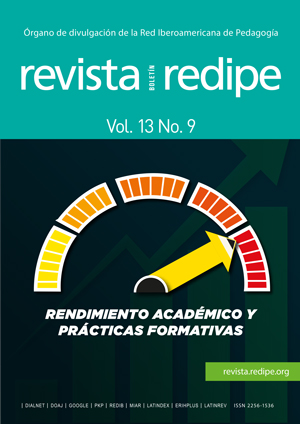Pedagogy and training of the subjects of education
Main Article Content
Keywords
Pedagogy-training-education, Subjects of education, Property-otherness, Wild thinking, Critical thinking
Abstract
It aims to address the formative processes of the educational experience in times of vital emergency, as one of the most important in the transition to schooling. It begins with the discussion of what it means to educate and its differences and coincidences with the pedagogical and formative vision of the subject of education.
The writing also recovers the positions of the formative acts as a contribution to the recognition of the subject from ownership and its correspondence with otherness, in terms and possibilities of care based on a pedagogical positioning that is based on the very value of one’s own - understood as the self- and the other as otherness, analyzing emotional, cultural, social, political and negotiation relationships, among many others. In this way we can establish a permanent relationship between pedagogytraining-education, and from this position, develop the process or processes necessary to contribute to the integral configuration of the subjects of education, as educational and educable subjects who reflect, discuss and They propose the transformations of realities and social, productive and relational environments.
References
Anzaldúa, R. (2007). Lo imaginario en la investigación educativa. Memoria IX Congreso COMIE. México.
“ ” (2004). La docencia frente al espejo. Imaginario, transferencia y poder. México: UAM-X.
Archila, J. (2013). Educación y pedagogía en el contexto del paradigma emergente. Una nueva forma de pensar y percibir el mundo para la formación de ciudadanía. Loos ciencia y tecnología vol. 5 núm. 1 julio-diciembre pp. 139-147. Bogotá.
Correa, C. (2010). Currículo, inclusividad y cultura de certificación. Una mirada desde la otra orilla. Barranquilla. La marcha del Quijote.
Di Caudo M. (2007). La construcción de los sujetos de la educación. Sophia colección de filosofía de la educación, núm. 2, 2007 91-131 Universidad Politécnica Salesiana, Cuenca Ecuador. https://www.redalyc.org/ pdf/4418/441846112006.pdf
Franco, Y. (2003). Magma: Cornelius Castoriadis: Psicoanálisis, Filosofía y Política. Buenos Aires: Editorial Biblos.
Glazman, R. (2020). Capacidad crítica del estudiante universitario. La importancia de la formación en la academia. Bonilla Artigas Editores.
Käes, R. (1978). El trabajo psicoanalítico en los grupos. México. Siglo XXI
Martínez, M.(2009) Dimensiones Básicas de un Desarrollo Humano Integral, Polis [En ligne], 23 | 2009, mis en ligne le 19 juillet 2011, consulté le 25 avril 2024. URL : http://journals.openedition.org/ polis/1802
Prieto Hernández, Ana María. (2013). Pedagogía y prácticas emancipadoras: Actualidades de Paulo Freire. Innovación educativa (México, DF), 13(63), 155-160. Recuperado el 27 de mayo de 2024 en, http://www.scielo.org.mx/scielo. php?script=sci_arttext&pid=S1665- 26732013000300010&lng=es&tlng=es



